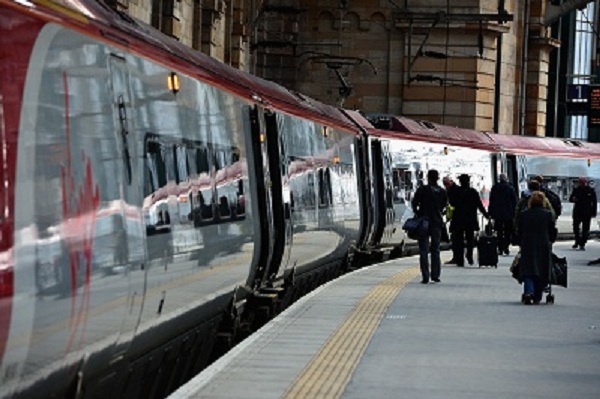How far do you think £321 would get you from London? Halfway across the world maybe? Asia? The US?
All of these are possible if you hunt around for cheap flights. But in the wonderful world of UK train travel, £321 of your hard-earned cash buys you a return trip from London to Manchester, a mere 326-mile round-trip.
There are cheaper train tickets, admittedly, but that’s the price a client paid for me to travel to Manchester to do a day’s (high standard and very reasonably priced) consultancy work for them. Their big mistake was not to book the ticket three months in advance or tie me to set trains each way. Fools. But the experience has provided me with a handy anecdote whenever I talk or write about train fares.
In an ideal world you’d be able to show up at the train station, tell the ticket machine or person behind the counter where you want to go and buy a ticket that doesn’t bankrupt you. But, no: that would be far too simple. Instead, train travellers are forced to employ an arsenal of sneaky tricks to purchase affordable tickets.
Start looking at fares 12 weeks in advance? Check. Use a train fare comparison website? Check. Buy ‘split tickets’ instead of one ticket for your whole journey? Check. Get a boyfriend and a Two Together railcard? Check.
According to the Office of Rail and Road, ticket machines at train stations cause so much confusion that a fifth of passengers who use them buy the wrong ticket. More than half the mystery shoppers it hired said the machines didn’t explain the times when peak and off-peak tickets were valid.
Fortunately, a host of websites have sprung up claiming to help baffled train travellers find the cheapest fares. The latest contender is ticketclever.com. It launched at the end of January and claims to have saved its customers an average of 58 per cent in the first week of operation.
Travellers can use ticketclever.com to book ahead, or the smartphone app while they’re at the train station to get cheaper fares than those offered by the ticket office. Its developers claim it uniquely calculates hundreds of millions of different fare combinations and identifies where the biggest savings can be made. For example, it might suggest travelling earlier, later, on a different route or splitting tickets (this is where a journey is broken down into separate parts with a ticket for each section).
But does it work?
I put ticketclever to the test with a random journey from Coventry to Liverpool on 24 February leaving after 9am. The website suggested I get the 09.27, changing trains at Stafford and arriving at 11.42. This would cost £37.60.
Later trains included the 09.42 for £30.40, or 09.50 for £9.50. Both trains arrived in Liverpool at 12.10.
Trainline.com (it dropped the ‘the’ some time ago) was selling tickets for the 09.27 train for £42.20 including a booking fee. The train arrived in Liverpool at 11.42 but involved a change at Birmingham, not Stafford. It also offered the option of the 09.50 train for £9.50, changing in Birmingham and arriving at 12.10.
The TicketySplit tool on the MoneySavingExpert.com website cut the price of the 09.27 train considerably by suggesting I split my ticket at Wolverhampton. It reckoned an Anytime Single from Coventry to Wolverhampton costs £6.10 and an Advance Single from Wolverhampton to Liverpool Lime St costs £6.25. This plan would also get me to Liverpool at 11.42 and cost just £12.35.
However, TicketySplit doesn’t actually sell tickets – I was directed back to Trainline to buy them.
This is where things got confusing. I returned to Trainline.com and followed TicketySplit’s instructions – but they didn’t work.
The ticket from Coventry to Wolverhampton was cheaper at £4.90 but the train from Wolverhampton to Liverpool cost more at £9.50. A 75p booking fee put the total cost at £15.15. However, the train times were different too – I’d arrive in Liverpool at 12.10, not 11.42.
So, what’s the point of all this messing around and splitting tickets if it gets me to Liverpool at 12.10? I could just get the 09.50 from Coventry, change in Birmingham, and arrive in Liverpool at 12.10: that costs just £9.50 according to both ticketclever and Trainline. And I’d get another 20 minutes in bed. Unlike Trainline, ticketclever doesn’t charge booking fees so would be the cheapest option.
I could run other examples in an effort to prove something or other but the whole process made my head hurt. My conclusion is that ticket prices are baffling and it’s virtually impossible to find the best deal even if you’re got a spare hour and three different websites to use.
But whatever you do, don’t just turn up at the station and expect staff or the ticket machine to sell you a cheap ticket: you risk being charged the same price as a long-haul flight.
Emma Lunn is a freelance personal finance journalist






Comments